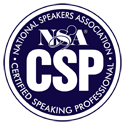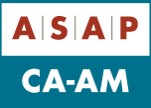
November 2010: Are You a Bad Manager?
This newsletter offers advice, tools, and tips for anyone trying to get better results as they face the daily challenges of being a leader, working on a team, or developing trusted advisor relationships.
Are You a Bad Manager?
By: Lynda McDermott
Before you answer that question too quickly you may want to read the rest of this newsletter!
Whenever I am conducting leadership training or coaching sessions, I find myself frequently making the statement: "If you don't like the performance you're getting from any of your people ...look in the mirror." The point I go on to make is that the results you are getting are the results you expect. Your people's performance is largely, although not solely, a function of how you are managing them.
In today's economic climate, where executives are demanding that managers and employees "do lots more with lots less", organizations can ill-afford to have anything less than "A" or "B" players working for them. If you are not getting A-B performance or your A-B players are leaving, that may be a sign that you are a bad manager. People don't quit companies, they quit managers. So being a bad manager today is costly.
Unfortunately, one thing that most bad managers have in common is that they're not consciously aware that they are bad managers. Maybe they've never had any feedback about their management style, maybe they're blind to the impact they are having, or maybe their egos keep them in denial that they could be part of the problem.
So what can you do to find out if you could be a bad manager? Well, you could start by taking a cold hard look at yourself using the Are You a Bad Manager checklist below:
- Yes___ NO____ Have you clearly communicated the vision/mission/values of your organization to all employees? People want to feel as if they are part of an organization which does work that matters. It is hard to motivate people to march up the hill every day just to achieve the short-term numbers. Your employees also want to know what the 'rules of engagement' are, i.e. what it is okay and not okay to do. Each organization has its own culture and you, as their manager, set the tone.
- Yes___ NO____ Are your team members' goals aligned with the team's goals? It is important that you have an annual plan that outlines your team's strategies and activities for the year. Each team member should then develop their own goals that line up with the team's goals. This is to make sure that you have been crystal clear about your performance expectations.
- Yes___ NO____ Do your people feel empowered to carry out their responsibilities that directly contribute to the vision and mission? Most employees are well-meaning and want to be led (not micro-managed) in a respectful and positive way. In today's virtual and technological environment, it is more difficult to manage with your eyes on the back of the heads of your employees. It was never a good practice anyway, and now it is virtually impossible. Trust your employees to make decisions and deliver results.
- Yes___ NO____ Are you prepared to hold 'crucial conversations' if there are performance issues with your team? If your team or any individual team member is underperforming, that is the first sign that you may need to hold a "crucial conversation". In these conversations you need to provide honest feedback about how the team or individual team member is performing. You also need to be open to asking for and hearing the other person's point of view about why they are not performing, including how you might be contributing to the problem. Each of these opportunities for dialogue should result in a Plan of Action that you need to follow-through on.
- Yes___ NO____ Are you really sure you are rewarding good performance and not enabling less than stellar performance? It is important that you periodically provide recognition and 'rewards' for outstanding performance. These are the 'chips in the bank' or positive consequences that motivate and sustain good performance. Alternatively, are you using negative consequences, e.g. constructive criticism, etc. when necessary, if performance is not up to par. In general, positive consequences are more powerful.
- Yes___ NO____ Are you effectively managing your role as a "player-coach"? In today's flattened organizations, it is not unusual for a manager to have his or her own projects, list of accounts, etc. for which they are individually responsible. This can create an excuse for the manager who may, in fact, prefer to do their own work. It is critically important that you manage you potential time management conflicts and remind yourself of your responsibilities to be accessible as a coach for your people.
- Yes___ NO____ Have you considered whether your team member's talents/strengths are suited for their particular jobs? People don't consciously 'underperform'. They either don't have the skills or are not motivated to perform their current jobs. If they want to do the job-get them training/coaching. If they don't want to do the job-re-assign them or make preparations for them to seek employment outside of the organization.
So, what is the verdict? Are you a good or bad manager? The fact is that, for most of us, this is not an "either-or" question. Even if you are a good manager, we all have our bad days.
One of my early mentors had a saying he used often: "A finished leader is a finished leader". So keep learning and growing! One of the most effective ways to really answer the bad manager/good manager question is to seek out feedback from your boss, your colleagues and direct reports. Some form of 360 degree feedback can help you to identify your strengths as a manager and areas where you need to improve.
If you would like to learn more about EquiPro's leadership, team development and executive coaching programs, please contact EquiPro....... at 212-421-1645 in New York or 813-415-3664 in Tampa.







